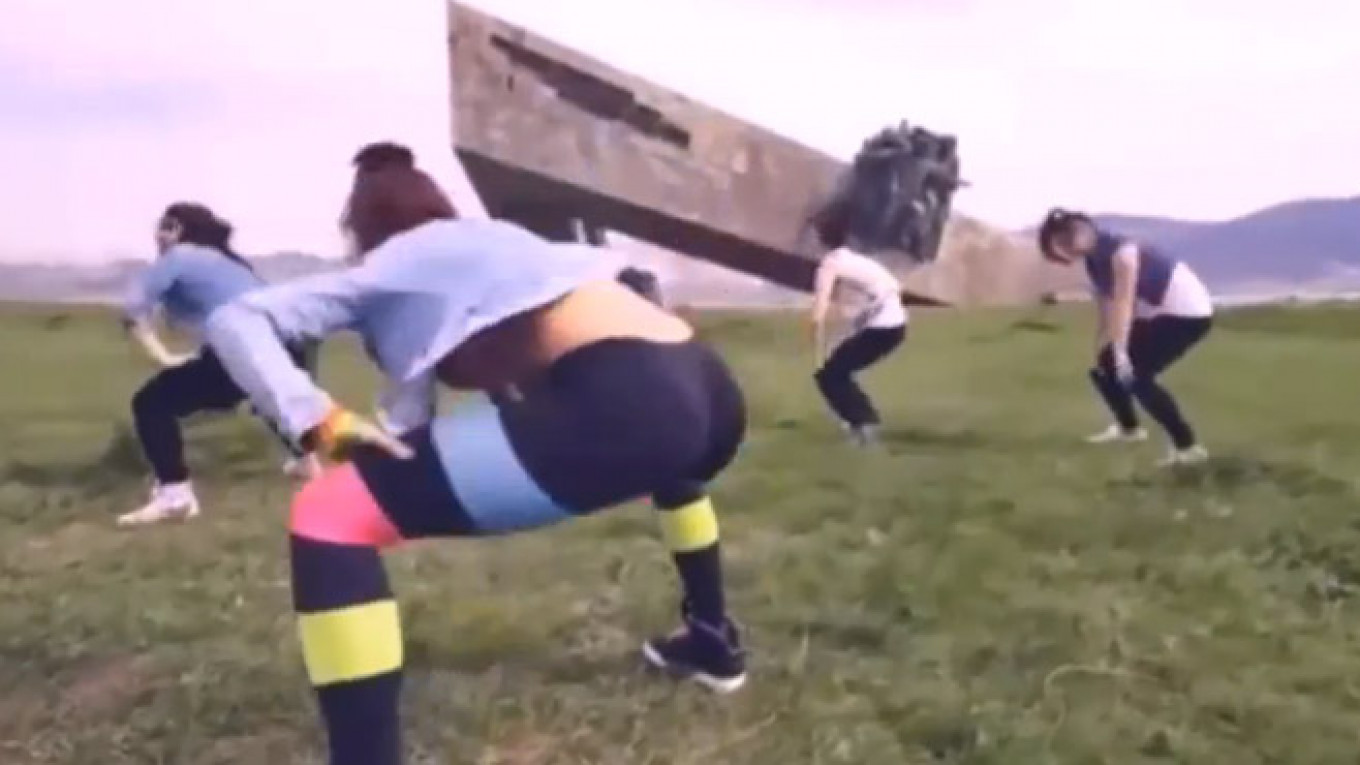In the second twerking scandal to rock Russia in recent weeks, several women who were filmed dancing in front of a World War II monument in southern Russia have been put in jail for up to 15 days, local authorities said Saturday.
A video of the performance posted on YouTube shows six women shaking their butts near the city of Novorossiisk's Minor Land monument, dedicated to a hilltop outpost that the Soviets recaptured from the Germans during the Battle of the Caucasus in 1943.
Three of the women are to serve jail terms ranging from 10 to 15 days for petty hooliganism, while two others avoided jail time on health reasons and only had to pay a fine, the regional Prosecutor's Office said in a statement on its website. The mother of the sixth dancer, who is under 16 years old, had to pay a fine for "failing to instill moral development" in her daughter.
The Soviet Union's victory in World War II, in which the Soviet Union lost tens of millions of people, is one of the biggest sources of patriotism in Russia today. Next month, for the 70th anniversary of the war's end, Moscow is planning an unparalleled celebration.
Two weeks ago a troupe of Russian teenage girls dressed up like bees in the Urals city of Orenburg caused quite a buzz after a video of them twerking in a dance school performance was posted on the Internet.
Some outraged viewers said the girls' bee costumes resembled the orange and black St. George's ribbon, which Russia uses in military awards and is associated with Soviet victory in World War II.
The girls' dance school was closed by authorities, and their instructors were threatened with criminal charges. Children's rights ombudsman Pavel Astakhov said in a Twitter post that the dance was "vulgar" and "insulting."
The dance studio head told Russian media that the costumes and performance "had nothing to do" with the St. George's ribbon or World War II.
Contact the author at p.spinella@imedia.ru
A Message from The Moscow Times:
Dear readers,
We are facing unprecedented challenges. Russia's Prosecutor General's Office has designated The Moscow Times as an "undesirable" organization, criminalizing our work and putting our staff at risk of prosecution. This follows our earlier unjust labeling as a "foreign agent."
These actions are direct attempts to silence independent journalism in Russia. The authorities claim our work "discredits the decisions of the Russian leadership." We see things differently: we strive to provide accurate, unbiased reporting on Russia.
We, the journalists of The Moscow Times, refuse to be silenced. But to continue our work, we need your help.
Your support, no matter how small, makes a world of difference. If you can, please support us monthly starting from just $2. It's quick to set up, and every contribution makes a significant impact.
By supporting The Moscow Times, you're defending open, independent journalism in the face of repression. Thank you for standing with us.
Remind me later.






